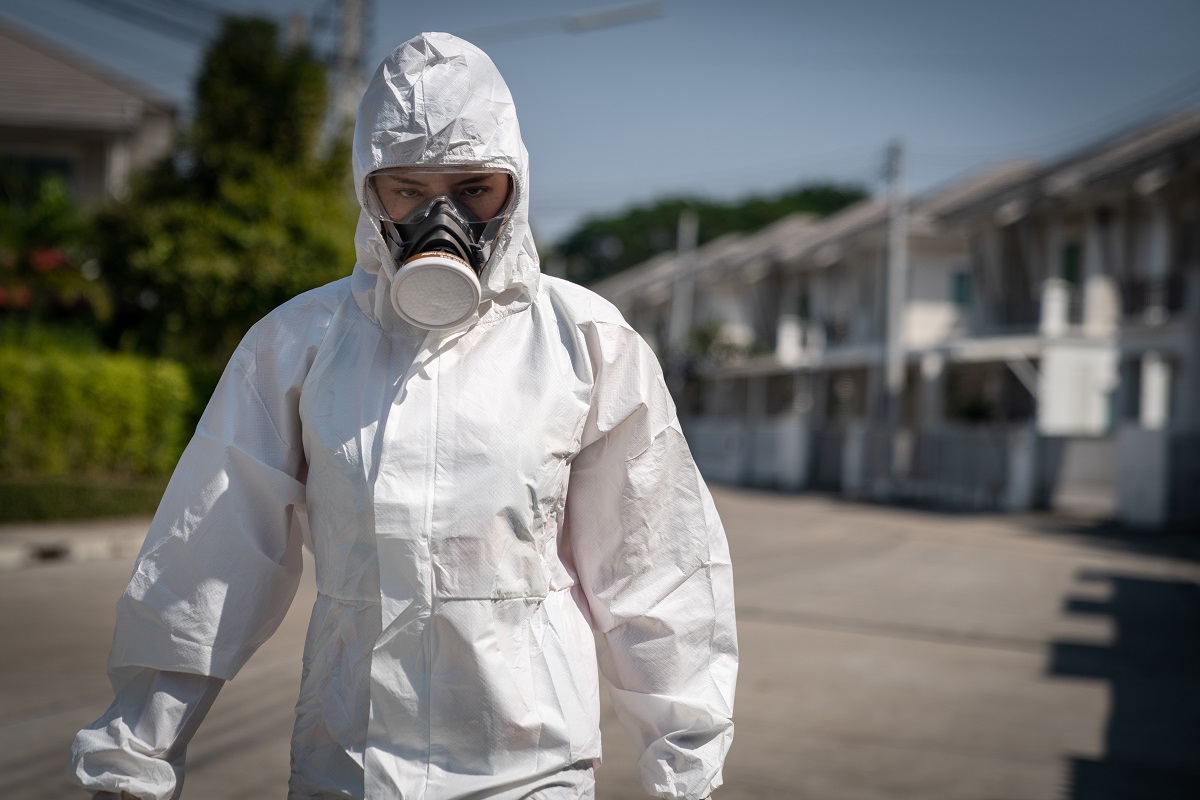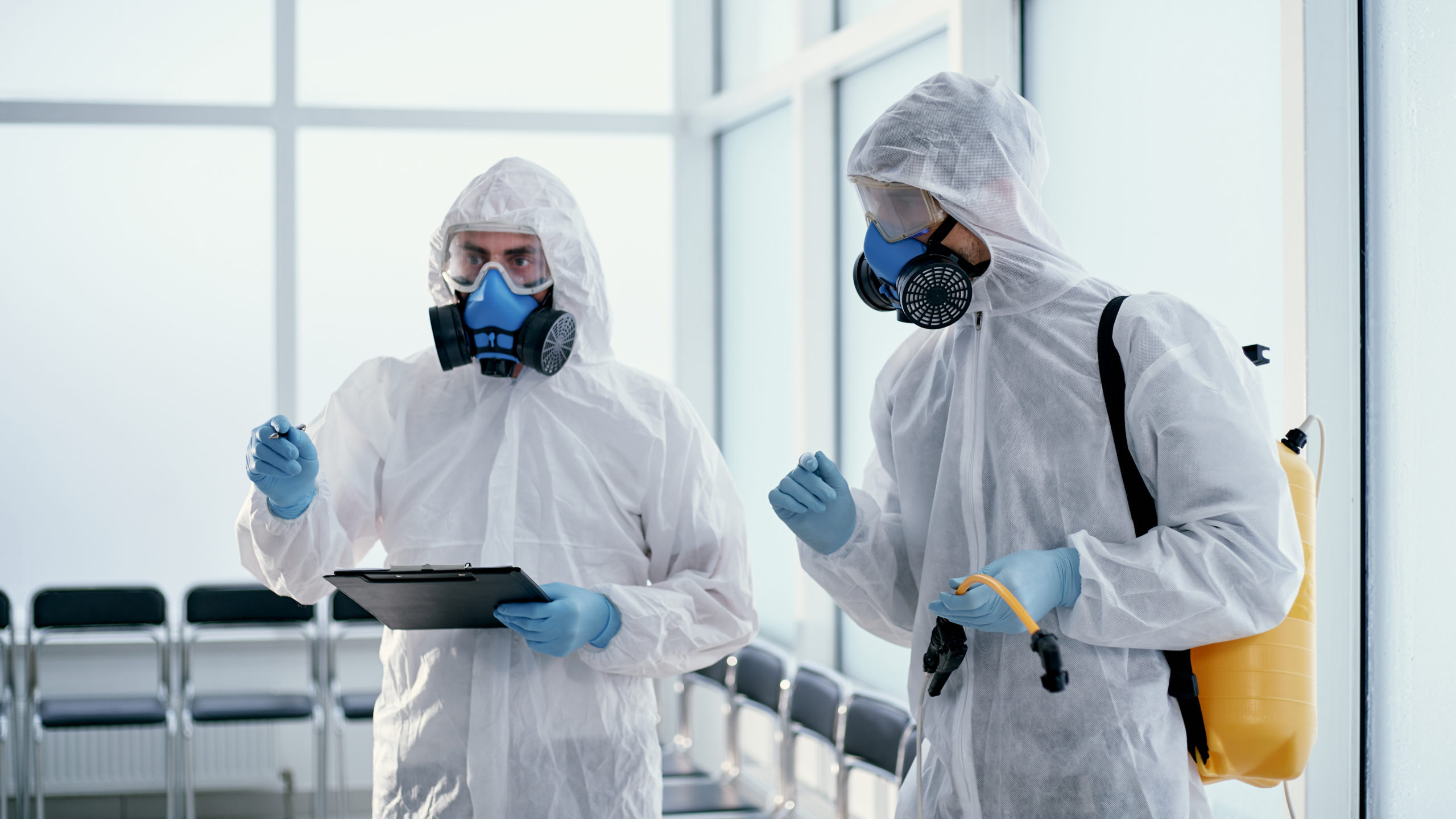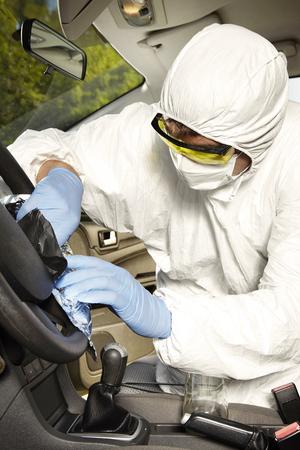Professional Biohazard Cleaning for Crime Scenes, Trauma Incidents, and Contaminated Spaces
In the world of expert biohazard cleaning, meticulous focus to detail and adherence to safety and security protocols are extremely important. When encountered with the consequences of a crime scene, injury case, or any type of infected area, the relevance of appropriate clean-up can not be underrated. The complexities and risks related to biohazards call for specific knowledge and competence to guarantee effective remediation. As we look into the ins and outs of biohazard clean-up for these sensitive atmospheres, a deeper understanding of the challenges and essential procedures involved will certainly arise, clarifying the important duty of expert cleaning solutions in recovering security and assurance.

Value of Biohazard Cleanup
Biohazard clean-up complying with crime scenes and trauma events is important for ensuring the safety of people and the environment. When these events happen, they commonly leave a range of biohazards such as blood, physical liquids, and various other potentially contagious products. These substances can nurture unsafe virus like bacteria and infections, positioning serious health threats otherwise correctly cleansed and disinfected.
Expert biohazard cleanup services are trained to take care of these dangerous products securely and properly. They have the necessary equipment, such as personal safety equipment and specialized cleaning agents, to completely decontaminate the influenced areas. By delegating the cleaning to skilled experts, individuals can prevent direct exposure to damaging microorganisms and stop the spread of transmittable conditions.
Moreover, correct biohazard cleaning is essential for protecting the atmosphere. Improper disposal of biohazardous products can infect dirt, water sources, and air, posing a hazard to wild animals and the ecological community. By adhering to stringent cleanup methods, professionals can make certain that biohazards are safely removed and thrown away based on guidelines, minimizing the threat of ecological contamination.
Types of Biohazards Encountered
Different hazardous materials frequently come across in crime scenes and injury cases existing considerable health dangers if not managed appropriately. Blood and bodily liquids are among the most typical biohazards discovered in these situations. These liquids can bring microorganisms such as HIV, hepatitis B and C, and various other dangerous microbes. In addition, cells, body organs, and body components can likewise posture serious health and wellness threats because of prospective contamination.
Another sort of biohazard commonly run into is sharp items like needles, broken glass, and various other things that can cause injuries and transfer infections. Chemical hazards are likewise a concern, as criminal offense scenes may consist of substances like tear gas, pepper spray, or medication manufacturing materials that need specialized handling and disposal treatments to stop more damage.
In addition, mold and mildew and microorganisms development can take place in areas where decay or prolonged direct exposure to moisture has taken place. These microbes can launch contaminants and irritants into the air, presenting respiratory system threats to those exposed. In general, biohazard cleaning specialists have to be experienced and well-appointed to efficiently deal with these various kinds of harmful products to make sure the safety and security of themselves and others.
Equipment and Protective Gear
When helpful site addressing the vital task of taking care of biohazards encountered in criminal offense scenes and injury occurrences, the application of correct tools and protective gear is critical to ensuring the safety of individuals involved in the clean-up process. Specialized cleaning tools like biohazard sharps, disinfectants, and bags containers are required for the risk-free collection and disposal of contaminated materials. Guaranteeing that all equipment is properly maintained, regularly checked, and used according to safety and security standards is essential in minimizing the risk of direct exposure to biohazards during cleaning procedures.
Cleaning Refine and Methods
Thorough and effective clean-up of biohazardous products from criminal activity scenes and injury incidents requires thorough focus to detail and adherence to strict safety and security methods. The cleanup process generally includes numerous vital steps.
Following the elimination of biohazardous products, the damaged location undergoes a comprehensive cleansing and disinfection process. This action entails the use of specialized cleaning up agents and equipment to ensure that all traces of contamination are eradicated. After cleansing, the area goes through strenuous testing to validate that it is cost-free and safe of any kind of staying biohazards.

Decontamination and Disposal Procedures
To make sure detailed purification and correct disposal of biohazardous products, complying with the careful clean-up procedure, certain treatments must be thoroughly adhered article to with rigorous adherence to security protocols. Decontamination includes the elimination or neutralization of impurities to lessen the danger of direct exposure and spread of hazardous materials. This process typically consists of cleaning, sanitizing, and sanitizing the affected area using customized equipment and EPA-approved chemicals.
When decontamination is completed, proper disposal of biohazardous products is critical to avoid further contamination or damage. Biohazardous waste, such as physical fluids or blood-soaked materials, have to be meticulously collected, packaged, and labeled according to governing standards. ATP testing. These materials are after that moved to certified facilities for disposal with ideal networks, guaranteeing compliance with regional, state, and government laws

Conclusion
To conclude, specialist biohazard cleaning is essential for guaranteeing the effective and risk-free removal of unsafe materials from criminal activity scenes, trauma occurrences, and polluted spaces. By making use of specialized tools, safety gear, and complying with appropriate cleaning procedures and methods, biohazard cleanup groups can properly dispose and sanitize of biohazards, decreasing the threat of direct exposure and harm to individuals and the setting.
As we delve right into the complexities of biohazard cleaning for these delicate atmospheres, a deeper understanding of the challenges and important treatments entailed will certainly emerge, shedding light on the important duty of expert cleanup services in restoring safety and tranquility of mind.
Specialist biohazard cleanup solutions are trained to take care of these harmful materials safely and properly. By adhering to rigorous cleanup methods, experts can make certain that biohazards are safely gotten rid of and disposed of in conformity with policies, minimizing the threat of environmental contamination.
Generally, biohazard clean-up specialists should be well-appointed and experienced to properly handle these various kinds of dangerous materials to ensure the safety and security of themselves and others.
When dealing with the vital task of managing biohazards encountered in crime scenes and injury cases, the utilization of proper equipment and protective equipment is critical to making sure the security of individuals entailed in the cleaning process.